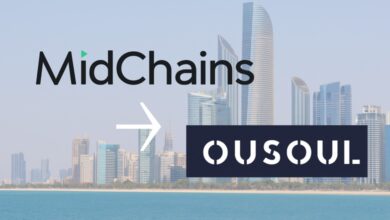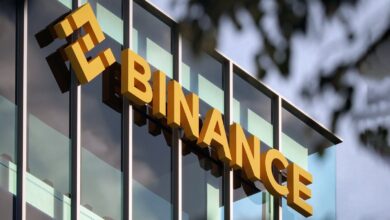Abu Dhabi Ports first local entity to Pilot Blockchain Trade Solutions with Belgium Port

Maqta Gateway LLC, an Abu Dhabi Ports subsidiary, unveiled at GITEX Technology Week that it began implementing the first international blockchain pilot testing project in partnership with the Port of Antwerp, Belgium.
Today’s announcement marks the latest milestone for “Silsal” project, which is considered to be the first Blockchain-based solution to be developed locally by an Abu Dhabi local entity. The innovative solution provides a seamless and secure link between stakeholders across the trade community using the electronic ledger system.
As part of a Memorandum of Understanding signed between Maqta Gateway and the Port of Antwerp to exchange experiences and promote collaborative innovation, the two parties will test this advanced project. The latest test of the Silsal project will play a vital role in supporting companies conducting trade transactions between the UAE and Belgium, providing full cargo visibility and streamlining trade flows and supply chains. The pilot project will test the capabilities of the technology to exchange, identify and acknowledge cargo documents and certificates between Abu Dhabi Ports and the Port of Antwerp.
Commenting on Silsal’s first international project, Captain Mohamed Juma Al Shamisi, CEO of Abu Dhabi Ports, said: “This is an important moment for us as we prepare to implement the first applied blockchain solution of its kind between Abu Dhabi and the world. Our technology experts at Maqta Gateway are working with world-class international partners, such as the Port of Antwerp, to deliver fast, reliable, and secure trade transactions through rigorous development and testing programs.”
Dr Noura Al Dhaheri, CEO of Maqta Gateway, explained the system further by saying: “We realized early on that blockchain technology can provide the very things necessary for reliability and integrity in the increasingly complex global supply chain. Silsal’s first international step today, working with the Port of Antwerp, is a manifestation of Abu Dhabi Ports’ commitment to secure Abu Dhabi’s global standing as a premier logistics, transport and trade hub, and support the Abu Dhabi Economic Vision 2030.”
Blockchain technology acts as an open digital ledger that can be used by trade actors to record and extract transaction details with greater security, transparency and efficiency. First unveiled in June 2018, the Silsal project has been rolled out in several operational phases and will be offered first to freight forwarders and their customers, and subsequently offered to the rest of the trade community as a complementary tool to Maqta Port Community System.
As part of the pilot project, Maqta Gateway will use Silsal to run a Proof of Concept test with the Port of Antwerp for the handling of international trade documentation using blockchain technology. The two sides have already established and agreed the technical specifications of the test, which will be achieved in the fourth quarter of 2018.
Mr. Erwin Verstraelen, Chief Digitaland Information Officer (CDIO), Port of Antwerp, commented: “We once again illustrate our ambition to be an open innovation hub that introduces new technologies, as we continue to believe that innovation and digitization are crucial for the success of trade in the long term, and therefore one of our core priorities. With Maqta Gateway and Abu Dhabi Ports we found a strong partner in searching for global collaboration initiatives, to come up with innovative solutions that enable safer and more efficient processes in the Port.”
Research has revealed that distributed ledger technology such as blockchain could boost trade by more than $1 trillion in the next 10 years; according to a white paper published by World Economic Forum in collaboration with Bain & Company. Titled “Trade Tech – A New Age for Trade and Supply Chain Finance”, the report reveals that by dismantling financing barriers for small and medium-sized enterprises (SMEs) and emerging markets, distributed ledger technology could facilitate up to $1.1 trillion of new trade volume, significantly plugging the global trade financing gap.





